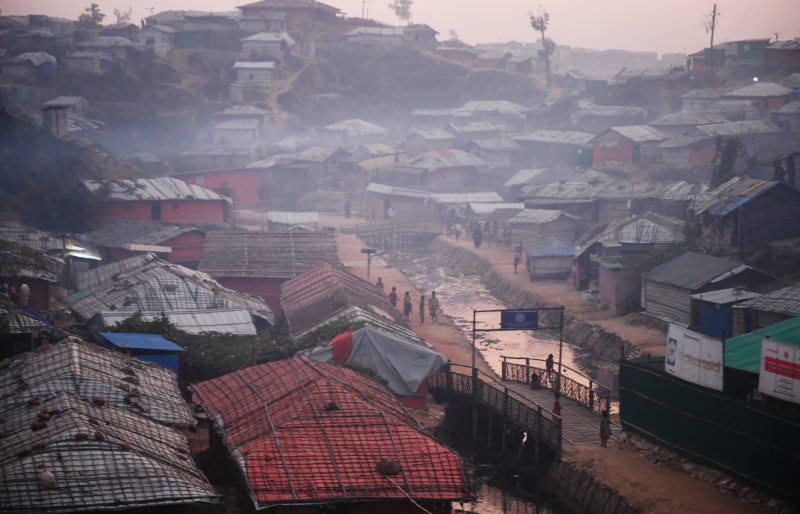Bangladesh stops 115 Rohingya seeking to reach Malaysia
The Kutupalong camp near Bangladesh’s border with Myanmar — seen here in November 2018 — is the biggest refugee settlement in the world, housing tens of thousands of Rohingya Muslims (Dibyangshu SARKAR)
Dhaka (AFP) – Bangladesh police have prevented 115 Rohingya refugees from being smuggled to Malaysia in rickety fishing boats, officials said Saturday, but no suspected traffickers were detained.
The group from the Kutupalong camp near Bangladesh’s border with Myanmar — the biggest refugee settlement in the world — were stopped as they headed to boats in the Bay of Bengal.
The operation, which took place late Friday, was the latest in a series involving Rohingya refugees seeking to leave squalid camps for Malaysia, a more prosperous Muslim-majority nation.
“We stopped a convoy of 15 auto-rickshaws and rescued 50 men, 39 women and 26 children,” Bangladeshi police officer Anwar Hossain told AFP.
“But we could not catch any traffickers.”
The officer said the Rohingya, who had already paid the traffickers some money, would be taken back to the camp.
About 740,000 of the Muslim minority Rohingya fled Myanmar for Bangladesh following a brutal military clampdown in the Buddhist-majority nation in August 2017.
They joined another 300,000 Rohingya who have already been living in the overcrowded camps in the Cox’s Bazar area following previous bouts of violence.
Thousands have risked their lives travelling to Malaysia and Thailand by boat when the Bay of Bengal is calm before monsoon season sets in at the end of March.
So far this year, Bangladeshi security forces have stopped more than 300 Rohingya from attempting the trip on small fishing boats, which experts say are not fit for deep-sea navigation.
The group detained Friday was the third prevented from heading to Malaysia this week alone.
The UN refugee agency (UNHCR) has said the vulnerability of Rohingya to trafficking has increased enormously as livelihoods, support networks, and other fundamental systems are disrupted.
“It is hard to comment on the scale of the activity, due to the clandestine nature of the activity,” UNHCR spokeswoman Caroline Gluck told AFP.
“The community finds it difficult to speak up.”
Disclaimer: Validity of the above story is for 7 Days from original date of publishing. Source: AFP.


